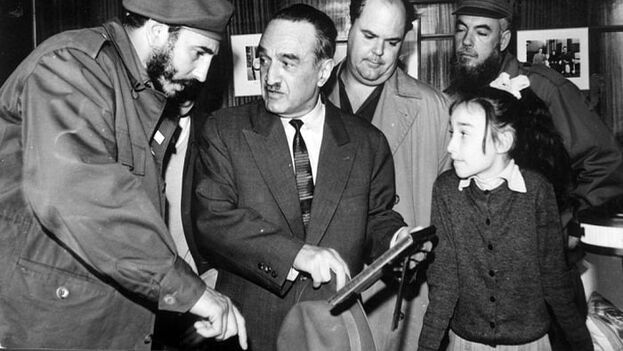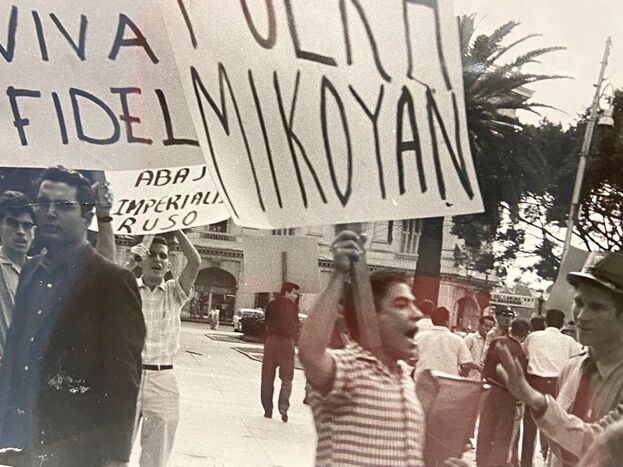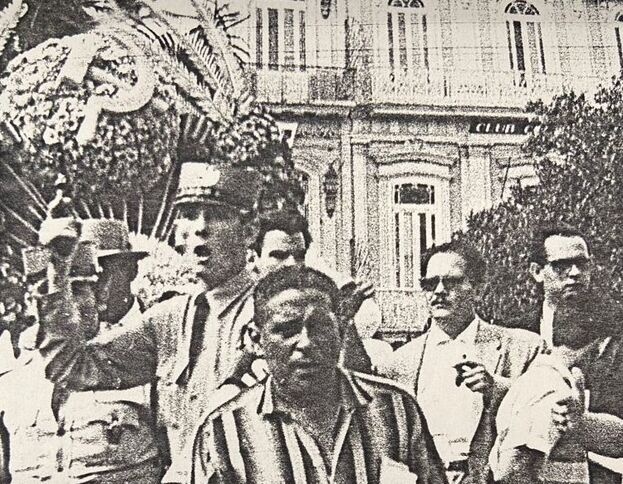
![]() 14ymedio, Reinaldo Escobar, Havana, November 13, 2021 — Those who want to extract the country from the anomaly in which it has found itself for more than six decades are accused of trying to bring about regime change with the support of a foreign power.
14ymedio, Reinaldo Escobar, Havana, November 13, 2021 — Those who want to extract the country from the anomaly in which it has found itself for more than six decades are accused of trying to bring about regime change with the support of a foreign power.
Throughout Cuban history there have been numerous changes of government but only three have resulted in regime change. All had the participation or support of foreign powers.
The first and most obvious was the violent eradication of the indigenous community, the archipelago’s original inhabitants, by Spanish conquistadors, who established colonial rule.
The second was the rise of the Republic, which resulted from long years of war for independence culminating in intervention by the United States, which imposed the provisions of the Platt Amendment.
The third regime change formally took place on April 16, 1961 when, in front of a group of his armed followers, Fidel Castro announced the revolution was a socialist one. In his speech he declared, “We will defend this socialist revolution with rifles.” Rifles that — along with mortars, canons and tanks — flowed into the country from the Soviet Union, a foreign power whose history and culture we did not share.
Though Castro made his “proclamation” on that date, the turnaround had begun taking shape a year earlier. On February 4, 1960, Soviet Deputy Premier Anastas Mikoyan travelled to Cuba under the guise of opening an exhibition. During his visit, the first commercial agreement between Cuba and the USSR was signed. It involved the purchase of sugar, the sale of petroleum and machinery, and a loan of 100 million dollars.

The presence of Mikoyan, the man associated with the bloody suppression of the 1956 Hungarian revolt, disturbed many anti-communists. After the Soviet leader laid a wreath adorned with a hammer and sickle at the base of a statue of Jose Marti in Central Park, dozens of students from the University of Havana protested by trying to replace the wreath with one displaying the Cuban flag. The peaceful demonstration, the first organized display of opposition since 1959, was violently suppressed by police. About twenty people were detained.
Suspicions that Mikoyan’s presence in Havana was a portent of a communist future alarmed many. But skeptics thought that impossible. Just fifty-two days earlier, when he was testifying at the trial of Commander Huber Matos, Fidel Castro said that the greatest crime the defendant had committed was “to slander the revolution by calling it communist.”
Although the revolution’s confiscatory ambitions had already been demonstrated, particularly after the agrarian reform law which broke up large land holdings, the process accelerated after the Soviet official’s visit, notably with the decision to confiscate the property of those who had decided to go into exile.
Diplomatic relations with Moscow were restored in May 1960. Two months later American-owned Texaco and Esso oil refineries were confiscated as were those owned by Royal Dutch Shell. In August, American telephone and electricity companies along with thirty-six sugar refineries were nationalized. Finally, on October 13, all Cuban and foreign banks (though not Canadian banks) suffered the same fate, as did 382 other large companies that operated textile mills, railways, cinemas, department stores and breweries.
By the end of 1960, Cuba had established diplomatic relations with three other countries: China, North Korea and Vietnam.
In September 1960 Nikita Khruschev visited Fidel Castro at his hotel in New York several days after Castro had attended the annual session of the United Nations General Assembly. Ten days earlier, the Soviet cargo ship Ilya Mietriov, under the command of Adolf Matiukin, had offloaded military supplies that would later be used by militiamen loyal to Castro at the Bay of Pigs.

The cargo included the heavy T-34 tank, in which Fidel Castro arrived at the combat zone. Also included was an Su-100 tank from which, legend has it, the Cuban commander-in-chief attacked the Houston, a ship loaded with supplies intended for the men of Brigade 2506.
The invasion force was made up of Cuban exiles supported by the U.S. government who claimed their goal was to restore the 1940 Cuban constitution and prevent a communist takeover of Cuba. Official propanda labeled their efforts as nothing more than an attempt to “recover their properties.”
The process of expropriation that culminated in 1960 mortally wounded Cuban capitalism, which had thrived on the island for fifty-seven years, and represented a political and economic transition to socialism, with the unbridled support of the Soviet Union.
Fidel Castro’s formal proclamation on April 16, 1961 did not follow the protocol such a transformative action required. It was not preceded by debates among parliamentarians (nothing resembling a parliament even existed), it was not discussed among party leaders (a political organization had not yet been created), there was no discussion in the press (all publications were in government hands) and it was not submitted to a referendum. It was done as an irrevocable decision announced in front of his armed followers (something which bears repeating).
Documents have not been declassified that might show the regime change was “cooked up” in Moscow. But the time span between Mikoyan’s visit in February 1960 and Castro’’s to the Soviet Union in July of that year, when an arms deal was finalized, suggests the Cuban side had to provide guarantees that the military equipment would be in good hands.
It is hard to ignore the enormous weight Soviet support had on regime change in Cuba in the 1960s.
Accusations now being made by those in power that anyone who advocates for democracy on the island is supported by “Yankee imperialists” are a reminder that this caricature of socialism was imposed on Cuba with economic and military support from a foreign power — and an imperial power at that — thousands of miles away, with an ideology that does not reflect our traditions.
The decision to seek closer ties to that power affected relations with the United States and Latin American countries, and threatened world peace. It also forced hundreds of thousands of Cubans to flee the country and left the majority of the country mired in poverty.
____________
COLLABORATE WITH OUR WORK: The 14ymedio team is committed to practicing serious journalism that reflects Cuba’s reality in all its depth. Thank you for joining us on this long journey. We invite you to continue supporting us by becoming a member of 14ymedio now. Together we can continue transforming journalism in Cuba.
